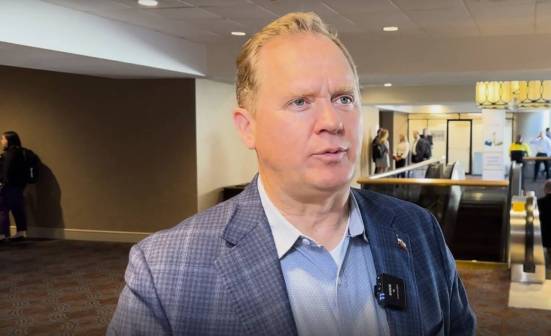Delaware looks to data to address health, education outcomes
When James Collins took his seat on Delaware Gov. John Carney’s Family Services Council, he realized his department could play a large role in addressing some of the biggest challenges facing state government.
“Our governor is chairing himself a Family Services Council. He wants to look at how state services can be targeted to improve outcomes in education, in employment and reduced violence and addiction,” Collins, the state’s chief information officer, says in a video interview with StateScoop.
Collins sits on that council, and said that over the course of their meetings he realized how much of a role technology could play in addressing those challenges.
“The question in my mind was ‘what is the data telling us around this to help target those services?’” Collins says. “I see myself as a convener — breaking down those siloes and bringing together the datasets to help us deal with real-world problems that are affecting Delawareans.”
And while Collins can use the state’s technology department to play a role in those issues, he and his team are also working on several “under the hood” projects to make state employees more mobile.
“[We’re working to] facilitate our employees being able to access information anytime from anywhere, and from any device,” Collins says. “We’re incorporating infrastructure as a service, commercial infrastructure as a service, into our service offerings.”
In addition, Collins says his agency is deploying platform as a service products to give agencies more autonomy with their applications, allowing agency leaders to configure their own apps without a developer on staff.
The state is also working on open data, cybersecurity and emerging tech like artificial intelligence and blockchain, Collins says. Earlier this month, the state’s blockchain director left state service , but the state said upon her departure that the work would continue.
Indeed, Collins says the state is regularly engaging in these conversations across state government.
“There’s a planning committee, because the tough part is really not the technology,” Collins says. “The business model and the value proposition is what we’re really kind of helping the agencies walk through to figure out how exactly they want to utilize blockchains.”


